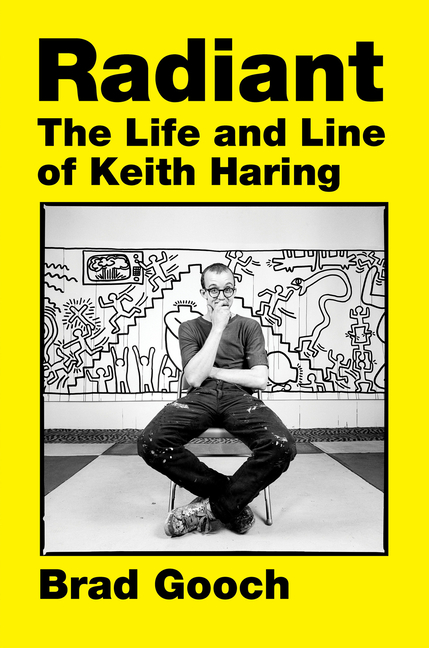Gooch, a seventies downtowner himself and the author of a sensitive biography of Frank O’Hara, is superb on the textures of these New York years, when a young artist seemingly couldn’t cross the street without getting ideas ... Reagan didn’t make a major speech on the subject until 1987, six years after the earliest reported cases and several after Haring began showing symptoms. Radiant never outright claims that he cranked out art in part because he suspected that he was going to die soon, but it doesn’t have to. Everybody he knew half suspected that they were going to die soon ... Gooch makes a valiant effort to present his hero as an artist-intellectual whose creations only seem shallow...Upon the single semiotics class Haring took at S.V.A., he builds a wobbly theory that the artist’s subway drawings were 'cleverly semiotic,' since they occupied space usually devoted to ads and therefore offered some comment on commercialism, though Gooch is less than his usual articulate self concerning what this comment might have been ... Haring’s style feels—is—the same whether enlisted in the cause of act up or his own bank account, of fighting racism or promoting the Pop Shop. What his images advertised was always changing, but they only ever spoke in advertising’s metallic chirp ... His admirers continue to complain that he isn’t taken seriously enough; in a way, they are correct, though this book may change things ... [a] highly entertaining biography.
Read Full Review >>

